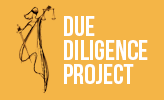About
End Gender-Based Violence: A Call for Action
Gender-based violence against women (VAW) is one of the most severe human rights violations of our time, deeply rooted in inequality and discrimination. It affects millions of women and girls, stripping them of their dignity, freedom, and safety. International law demands that States take action to protect, respect, and fulfill human rights. Many countries also enshrine these rights in their Constitutions (as civil rights or fundamental rights), obligating States to make and implement real solutions to prevent and effectively respond VAW.
The Global Fight Against Violence: Where do States Stand?
While the need to end VAW is widely recognized, the exact responsibility of governments in this struggle remains vague. This lack of clarity is a major roadblock to real change.
The Due Diligence Project undertook a global advocacy-driven research, engaging multiple governments and their officials, scores of academics/experts, hundreds of civil society organizations and thousands of advocates assessing State measures to prevent, respond and eliminate VAW.
1. How do States interpret and comply with their human rights and Constitutional obligations in the context of VAW.
2. How can we monitor and assess States’ progress in fulfilling their obligations?
3. Are States discharging their responsibilities in preventing violence, protecting survivors, prosecuting offenders, and providing justice for survivors?
4. What are the best global and regional practices to eliminate VAW?

The Due Diligence Framework: A Roadmap for Change
The Due Diligence Framework is our answer—a tool that translates complex legal principles into clear, actionable steps for governments. Based on our research, it’s designed to help States assess how well they’re doing in protecting women’s rights and addressing VAW.
Here’s how it works:
- It helps governments track their progress and hold themselves accountable for their actions (or lack of them).
- It guides the development and implementation of laws, policies, and programs that prioritize women’s safety and human rights.
- It equips civil society organizations (CSOs) with the tools they need to monitor, advocate for change and form smart partnerships with governments to promote accountability.

What States Need to Do: The Five P’s of State Responsibility
The framework is built around the five P’s of State responsibility for addressing VAW:
Preventing violence against women (VAW) means taking action before harm occurs. Governments must raise awareness, provide legal support, and tackle root causes like gender inequality and poverty. Effective programs focus on education, training, and resources for women’s protection.
Under international law, governments must eliminate gender discrimination and hold perpetrators accountable. This includes clear laws and addressing factors like education, employment, and housing. Campaigns, media outreach, and education are crucial to spreading the message and creating a world where VAW is not tolerated.
Protecting survivors means keeping them safe from further harm. It ensures they get the support they need quickly, often called “secondary prevention,” which focuses on stopping violence from happening again.
Survivors need protection not just from the abuser, but also from their circle—friends and even their own family/relatives who may react negatively to their reporting the violence. Protection must happen at all levels: global, national, local, and personal, because violence affects every part of society.
Prosecuting is a key sign that a State is doing its part to stop violence against women (VAW) – that is how it investigates and prosecutes cases.
Survivors need to know they can seek help without fear of retaliation. Quick, thorough investigations and prosecutions give survivors confidence to take action, whether it’s to stop the violence or leave a dangerous situation.
Punishing perpetrators means holding perpetrators accountable for VAW through criminal, civil or other sanctions, like community service.
At a minimum, there must be negative consequences for those who commit VAW to deliver commensurate punishment, deter and rehabilitate perpetrators. Failing to punish perpetrators leaves survivors vulnerable and unprotected.
Providing redress and reparation ensures survivors of violence against women (VAW) receive remedies for the harm they’ve suffered. This can include compensation, apologies, or symbolic acts to heal the effects of violence. Survivors should be treated with respect and given full access to justice and support.
Reparations can transform society by empowering women and reshaping how VAW is understood. Restitution (restoring survivors to their original situation), compensation (support, usually financial, for physical, emotional, or economic harm), rehabilitation (medical, psychological, and social services), satisfaction (public acknowledgment, apologies, truth-telling, and sanctions for perpetrators) and non-repetition (measures to prevent future violence, like human rights education and law reform) are all forms of reparations.
Turning Research into Real Change
Our research reveals that one of the biggest barriers to ending VAW is the fear of retaliation and lack of confidence in the legal system. Women are often too scared to seek justice because of potential harm. That’s why we’re calling on governments to:

Survivor Protection
Prioritize survivor protection, ensuring safety and privacy for those who report violence.

Legal Systems
Strengthen legal systems to ensure perpetrators face real consequences and survivors receive remedies and reparations.

Support Services
Offer support services, including shelter, legal aid, and mental health care to help survivors rebuild.

Prevention
Develop and undertake effective prevention campaigns through education, awareness and training programs.
Making a Difference: The Power of Guidelines
The Due Diligence Guidelines work hand-in-hand with the Framework to provide governments with a clear path forward.
These guidelines give both governments and civil society a tangible way to turn research into real-world solutions, ensuring we’re all working toward a common goal: effectively ending violence against women.
- Practical: Offering tools for better decision-making, tracking progress, and improving programs.
- Actionable: Helping States and organizations assess the effectiveness of their work and adjust when needed.
- Accountable: Ensuring transparency by showing what’s working, where improvements are needed and making sure no one is left behind.
The Due Diligence Framework: State Accountability Framework for Eliminating Violence against Women
Learn How The Due Diligence Framework Can Help Eliminate Violence Against Women
© 2025 The Due Diligence Project. All Rights Reserved.
